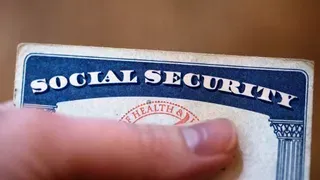November 10, 2011
Gay Former Ambassador Opens Up In Memoir
Kevin Mark Kline READ TIME: 4 MIN.
James Hormel, the openly gay San Francisco philanthropist and an heir to the Midwestern meatpacking company famous for its Spam product, could have likely avoided a nasty battle over his nomination as U.S. ambassador to Luxembourg if he had instead accepted an offer in 1997 to become the consul general in Bermuda.
Three years earlier former President Bill Clinton's decision to name him ambassador to Fiji sank under opposition by officials in the South Pacific country and a Republican takeover of Congress in the fall of 1993. Undeterred, Hormel continued to lobby for a diplomatic post.
He was named a delegate to the United Nations' Human Rights Commission in Geneva as he sought to bolster his resume. Then came the offer of the Bermuda post, which did not require as extensive congressional vetting as an ambassadorship did.
Yet Hormel saw Bermuda more as a vacation on a tropical island than a serious foreign policy assignment. If he accepted it, the Clinton administration "would think that they had done all they needed to do for me, and by extension, the LGBT constituency."
Senator Dianne Feinstein, a longtime friend, counseled Hormel to accept the position. Republicans were dead set against seeing an out gay man be confirmed an ambassador, she warned, and would eat him alive.
"Too naive to conceive of the assault the far right would launch against" him, Hormel "felt driven to push ahead." Then on October 6, 1997 Clinton named Hormel ambassador to Luxembourg.
Hormel recounts the episode in his new memoir Fit to Serve: Reflections on a Secret Life, Private Struggle, and Public Battle to Become the First Openly Gay U.S. Ambassador (Skyhorse Publishing, $24.95). The autobiography is co-written with former Hartford Courant reporter Erin Martin.
It recounts the anti-gay character assassinations Hormel faced as religious conservatives set out to torpedo his confirmation. Although he sailed through a committee hearing, Hormel was never brought up for a vote in the Senate.
Religious leaders like televangelist Pat Robertson labeled him a pedophile and accused him of being anti-Catholic and unfit to serve in a predominately Catholic country. Several Republicans placed holds on his nomination due to the anti-gay attacks, so Clinton eventually used his recess appointment power to bypass the Senate altogether. Thus on June 29, 1999 Hormel became America's first out ambassador.
"I feel I served a very useful purpose doing what I did," Hormel told the Bay Area Reporter during a phone interview this week.
Shortly after Clinton won the 1992 election, Hormel had dinner with Bob Farmer, at the time the Democratic Party's national treasurer. Farmer was the first to suggest Hormel seek a presidential appointment.
Farmer, who is gay, was in fact named consul general to Bermuda in 1994 and served until 1999. Out to Clinton and other officials in Washington, Farmer did not publicly discuss his sexual orientation until years later in an interview with the Advocate.
Hormel, on the other hand, felt he was in a position in life where he could be out and force the country to discuss if a gay person could be a direct representative for the President.
"It sounds like noblesse oblige, and I don't mean it that way, but the truth was that being open about my sexual orientation was not going to cost me a job," he wrote.
He first thought about penning the book amidst the fight over his ambassadorial appointment. But it wasn't until about five years ago that he began work on it. It evolved from a retelling of the battle over his diplomatic post into a fuller portrait of his own personal history.
"Without being open about our sexuality, which is odd because it's really nobody's business, but without being open about it we aren't going to get very far in our struggle for equality," said Hormel, who will turn 79 on January 1. "I had originally conceived the book as a political memoir. The more I talked with Erin, I realized it had to be much more autobiographical."
The book delves into Hormel's childhood and college years. He recounts his suppressing his homosexuality during his marriage to Alice Parker, with whom he has five children. They divorced in 1966 and Hormel moved to New York City the following year.
He admits he smoked marijuana and describes how the FBI once tried to recruit him to be an informant. In 1975 he landed in San Francisco with former boyfriend Larry Soule and soon worked his way into the city's elite cultural and political circles.
At first Hormel didn't tout his involvement in gay causes. But the advent of the AIDS epidemic changed his thinking. He was a founder of the Human Rights Campaign and marshaled his personal wealth to donate at least $4 million to 40 various organizations between 1983 and the early 1990s.
He wrote, "funeral by funeral, AIDS gave me and many others a new life. We were no longer just a community - we were a political constituency."
Looking back at his life was a "painful" process, said Hormel, but he has no regrets.
"I've tried to avoid regrets because those don't accomplish anything. They don't really help to move us forward," he said. "And I can't say, 'Oh, if I could only have done that differently.' If I could, who knows where I would be now?"







